Lolo is a former Hong Kong national rugby athlete and a current Hong Kong beach volleyball athlete representing the city in the Asian Games.
Welcome to the Spotlight series by TMS, where we highlight businesses and people around Hong Kong making waves. This week, we’re speaking with Lolo, an elite volleyball athlete representing Hong Kong in the Asian Games 2023.
Lo Wai Yan, who goes by Lolo, has pursued her goal of becoming an elite athlete ever since she was little. Now, she balances her time between her job as a civil servant and her successful athletic career, keeping close to heart the mantra “Hard work beats talent.”
She’s a former Hong Kong national rugby athlete and a current Hong Kong beach volleyball athlete headed off to represent the city in the upcoming Asian Games this week in Hangzhou, China. In the meantime, while preparing for this huge competition, Lolo just placed 2nd in the Continental Cup Eastern Zone (Phase 1) in Nanjing, China, and she qualified for Phase 2 of the competition in June 2024. She’s passionate about the local sports scene, so as part of TMS' spotlight on the #WomenWithMuscles series by Onside Sports Group, we caught up with Lolo before leaving for the Asian Games to chat about her elite sports journey, the Hong Kong volleyball scene and her thoughts on women in sports.
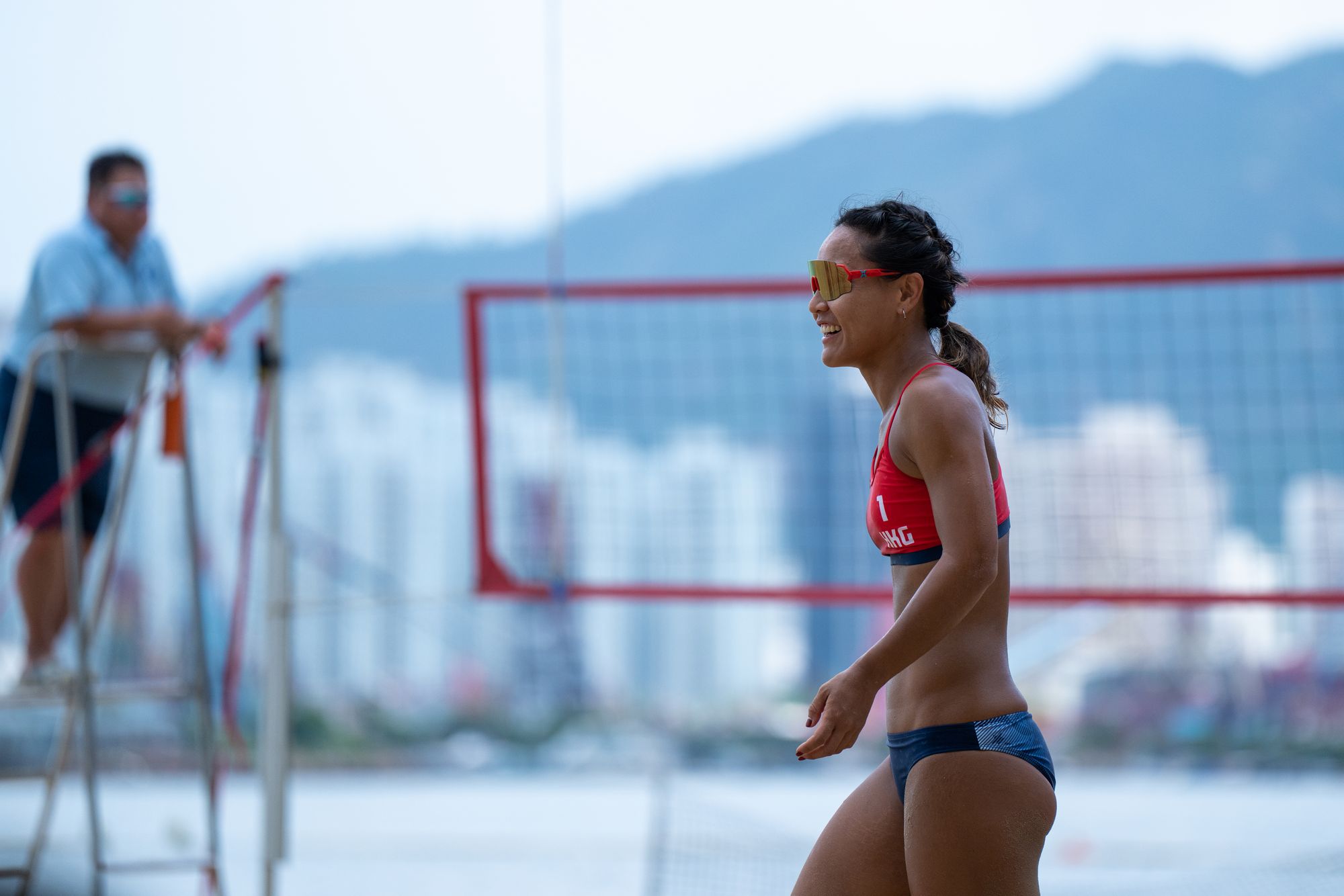
Q: You’ve said you’ve wanted to be an athlete since you were young. What was the first sports memory you have that got you hooked?
The first sport I did was badminton, which was one of my leisure family activities in the evenings. My mother was not a professional coach or such, but she was our family’s instructor teaching my brother and me all the basic skills of badminton.
We really enjoyed the sport a lot, with my brother and I even getting selected as our school team representatives as well as [for] the overall local district team, so something like intra-regionals. We did really well at inter-school competitions and achieved remarkable results. Tasting these victories and earning trophies for our teams are some of the fondest and initial sporting memories that made me realize sports are not only for leisure and that I did want to pursue becoming an athlete entirely and see how far I could go in various sports.
Q: Has your family always encouraged you in your sports goals?
My family saw sports merely as extracurricular activities that were an addition to the main focus of academics while I was in school, and it wasn’t until secondary schooling that the shift to sports became heavier.
Q: At what point did you set your mind to work toward competing at the elite level?
It was while competing at the tertiary stage when I was studying at the City University of Hong Kong as I had entered university through their Athlete Scheme. The University showed great support for local athletes who were having significant sports achievements. Studying in university, the time flexibility helped me believe it was my golden chance to take the leap to elite forward.
Q: What advice would you give a young athlete who hopes to play at the elite or professional level eventually?
The current sports resources and opportunities are much greater now than in the past decade, which allows the current generation’s youth athletes to experience more athletic development themselves while raising the local standards higher. When the opportunities come up at various stages of a sportsperson, I’d hope that all young athletes would grab each chance hard and please remember that “Hard Work Beats Talent” and to truly explore the beauty of sports rather than only chasing victories.
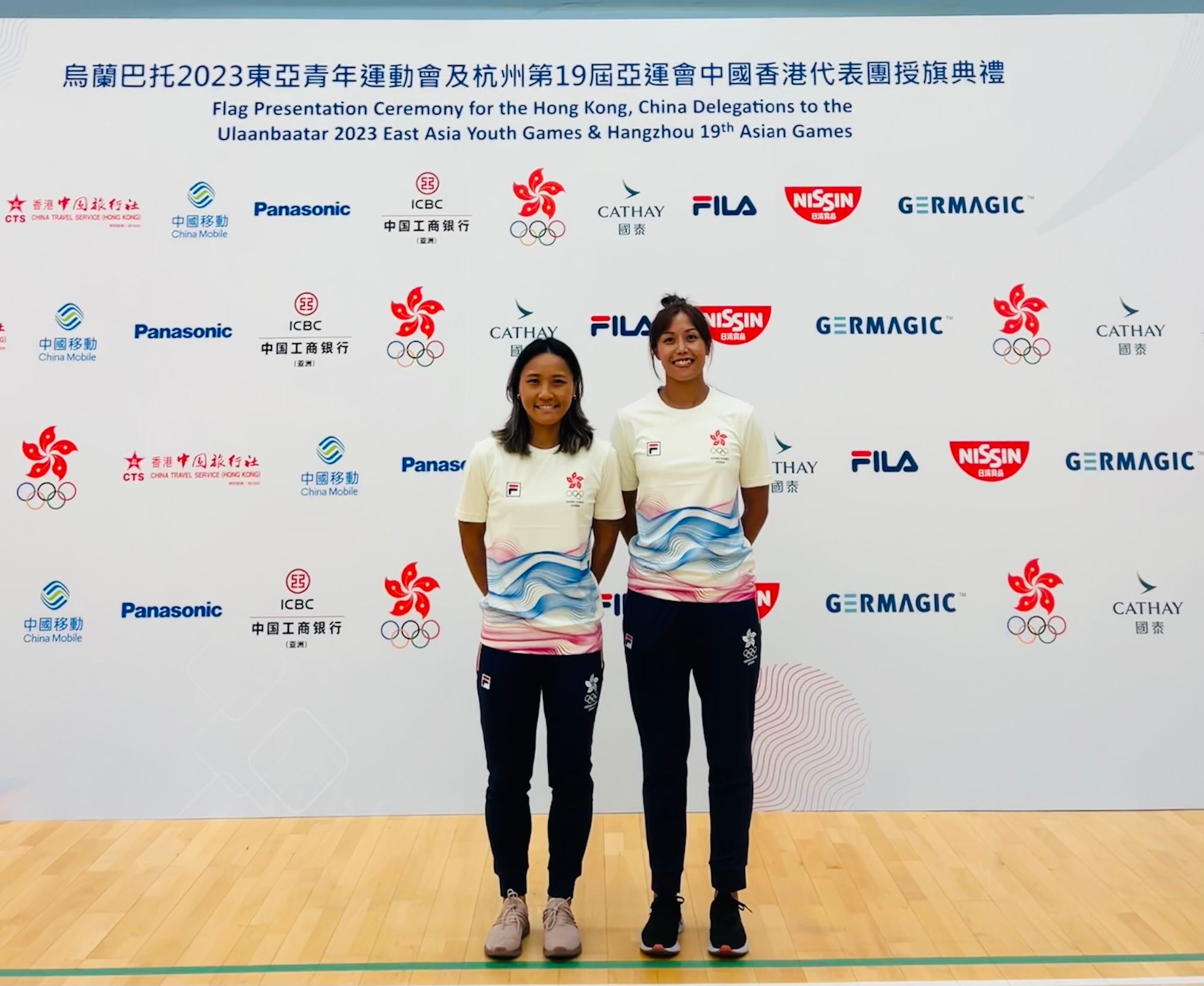
Q: How do you manage training sessions with your full-time job?
If we want to be an elite athlete in sports, the commitment to training sessions is [important]. I am working a shift pattern, and I am required to work overnight shift work as well, but it gives me more flexibility in time management. For example, I can do my training sessions on a weekday night and then go to work right afterward.
Sometimes I will go to work after arriving in Hong Kong right after finishing a tournament. Compared to typical office hours, my work comparably tends to be better, but I always have to compromise on my rest and recovery time. Therefore, I may have to put lower priority on daily entertainment or gatherings, which I might have to reject, in exchange for more time for rest to be able to commit 100% to my job as well as my training sessions.
I love my job not only because of the salary but also the fulfillment of working as a team on my job, which is familiar with a sports team spirit. In Hong Kong, it is truly hard to be an athlete as the opportunity cost is really high. But for my volleyball partner and I, we want to prove that one can pursue a professional career and an athletic career simultaneously, especially for the sense of security for athletes who will have to leave their athlete lives behind at some point on the road. I believe when we become grandmothers after another 40 years or so, these will be some of the sweetest moments in our memory we will savor.
Q: Up to now, what’s something you consider one of your biggest achievements?
I think my biggest achievement would be winning the local qualifying tournament match for the Asian Games in December 2022 with my partner. This new combination of partnership started in 2019, but the COVID outbreak really gave us a huge blocker in our professional development. While we rebooted our partnership through the end of the pandemic, it was not all smooth sailing. Finally, we earned ourselves a spot at the upcoming 19th Asian Games of Hangzhou, and that undeniably has to be one of my biggest achievements.
Q: Your elite sports career started with the Hong Kong rugby programs. What was it like representing HK in this sport?
Representing Hong Kong in rugby was the best ‘athlete life’ for me. The Hong Kong China Rugby Union put so much effort into every single rugby player's development and gave lots of resources on and off the field for players back then.
The additional resources made the competition within the group much higher, and final team lists were only ever released around 1-2 weeks before the tournament. So, every single time I got selected for a tournament team list, I felt excited and grateful that my hard work paid off. And I’d also always remind myself my perseverance was valued, and that kept [me] moving forward. At times when I wasn’t selected on the final tournament team list, I would still send my blessings and appreciation to my teammates.
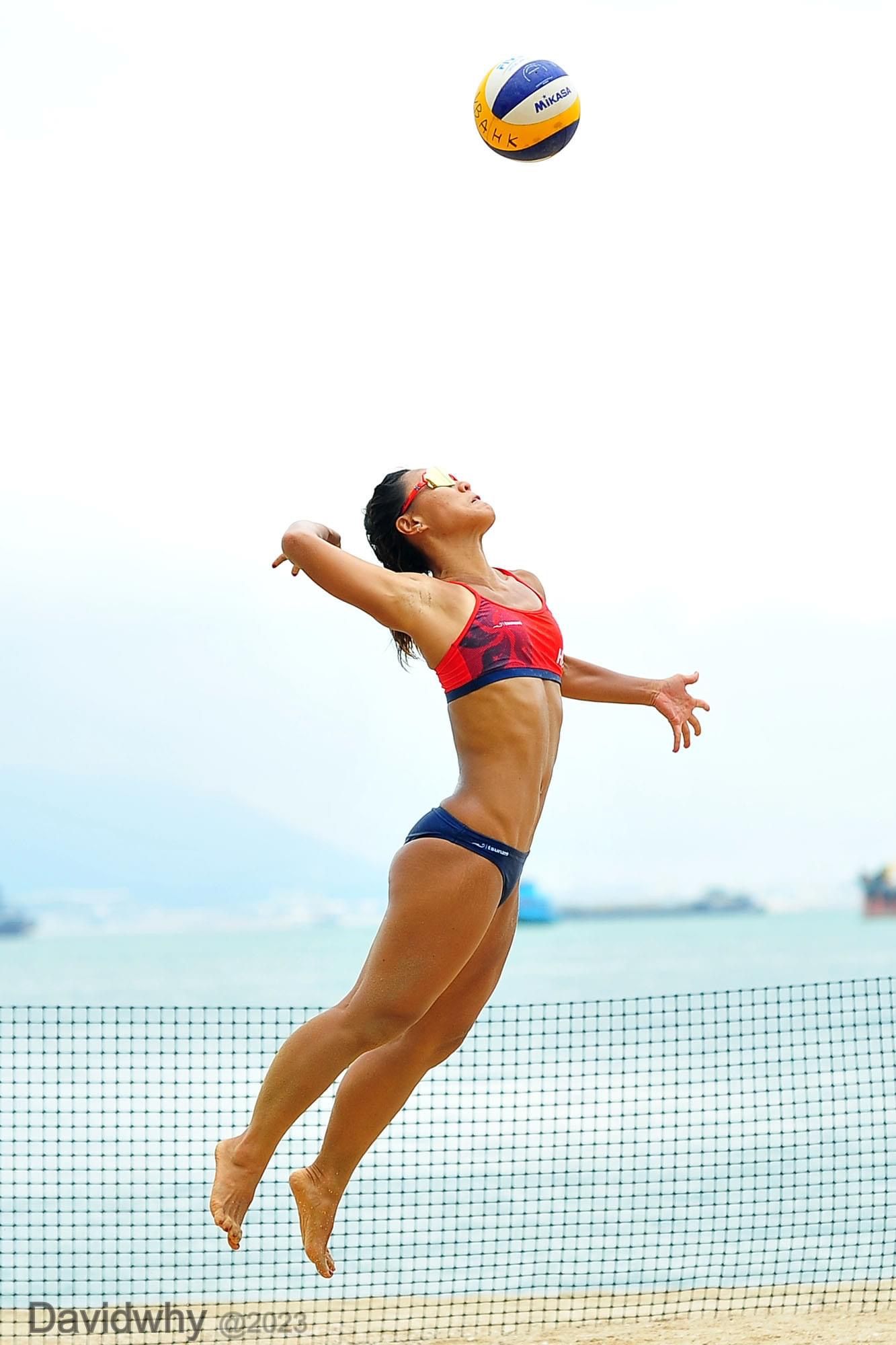
Q: Not long after, you found yourself back to playing volleyball, which you call your first love. How did that happen?
I played beach volleyball for over 15 years, and there were many international tournaments (Asian tours) I have been to with this sport. In 2019, I decided to partner with Gigi Yuen, who is an equally experienced player with a profound passion for beach volleyball. We were at similar life stages, such as juggling a full-time job with a shift worker schedule and also our heavily packed training routines.
Our backgrounds are quite similar; therefore, there was no pressure in partnership, and we have really good communication between us. Since our partnership began as doubles players, I am proud to say there haven't been any substitute or bench players to replace either of us. I would say we work hard and really treat each other like family.
In previous years, I have had different beach volleyball partners who are talented, young and with great potential. However, they no longer play beach volleyball or ended up studying or moving overseas. I’m not making any comparisons with them, but Gigi truly came into my life at the best possible timing in my beach volleyball career, seeing us qualify for the 19th Asian Games in Hangzhou 2023, as I believe she is the partner that truly enables me to enjoy beach volleyball, even if competitively. And this might actually be the last and only opportunity for us to step up to a major competition level.
Q: What are some of the main differences you’ve seen in the Hong Kong sports world when comparing rugby and volleyball?
The backing association’s facility and financial support are hugely contrasting. There are only three beach volleyball courts available for athletes training in Hong Kong, and the time slots for booking these courts are also shared with the general public as well. And at one of these beaches, Tuen Mun Cafferia Beach, the court only allows for two in maximum. During the peak season of competition, the courts are fully used on weekends. Moreover, the Rugby Union's financial support is far greater, while the overseas tournament fees are also subvented.
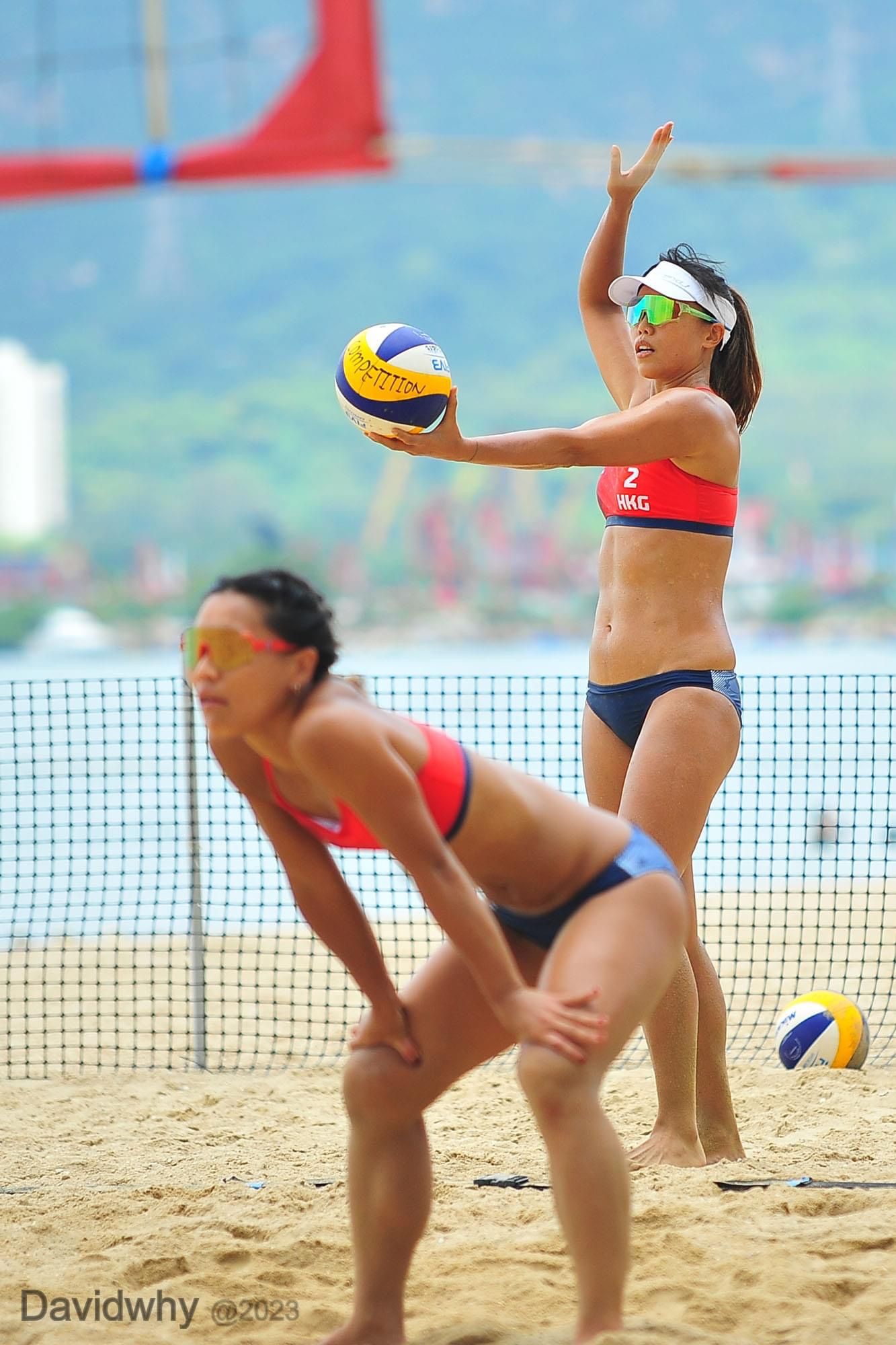
Q: We’ve heard that volleyball is a really player-funded sport in Hong Kong. How so?
Yes, volleyball is a nearly entirely player-funded sport in Hong Kong. The organizing association's funding is limited as they can only afford to send a few players to a few major tournaments. However, beach volleyball athletes normally still have to find a way to participate in national-level tournaments in order to maintain average ranking. As we all know, better ranking is beneficial to your further categorization in other group or pool segments at different competitions. So very often, an entire tournament’s participation from end to end can be self-funded, and sometimes for cheaper air tickets, we might even sleep at the airport one night to save some money.
Q: You’re passionate about growing the volleyball game locally – how are you doing that now? What could Hong Kongers do to support the local volleyball scene?
Watching more local tournaments in Hong Kong, showing Hong Kongers' presence and clapping hands are huge motivations for every athlete to keep playing hard and boosting them to step up to a higher stage one day.
Having a larger audience base can always help the sports community develop a “sports-entertainment” culture, similar to our Hong Kong iconic mega sports event, the Hong Kong Rugby 7s. The audience presence functions beyond merely cheering for the players, but more so for carrying and growing the awareness of sports in Hong Kong. This then also encourages the cycle of more people exploring and adopting sports and exercise habits, and thus also the subsequent economic development of sport-entertainment locally.
Q: You’re also passionate about advancing local women’s sports equity. What does sports equity mean for you in your own words?
Advertising and marketing of and in sports should not be limited to any one gender. Some sports, although they are quite big among women, too, their structure is still very traditional, with men’s team's promotion and social media support still being far greater than the women's teams, as we can see with the NBA and FIFA. This continues to encourage the perception of gender differentiation in sports, for example, soccer may be seen as a men's sport, while gymnastics [may be seen] as a women's sport.
I’m very well aware and happy that the participation of women in sports keeps increasing all over the world. I’m also glad that the growing population of women's sports as a whole helps invalidate the traditional views of gender differentiation in sports. Sports and women in sports actually play a very essential role in challenging gender stereotypes and placing us at a level comparable to men in pursuit of equality as a whole.

Q: What big misconceptions would you like to debunk about women’s sports?
Historically, women have always been expected to be elegant and ladylike and always put effort into their appearance, thus limiting sportswomen to not looking anything different than society’s standards. I think, especially in beach volleyball, just because we have a certain attire, it doesn’t mean we are vulgar or any less of a woman, or bitchy or whatever perceptions of beauty society wants to project onto us. I think the strength of a sportswoman can’t be truly valued by the exterior; our true ability, beauty and potential are always limitless from the inside.
Q: One of your focuses is on advocating for mental health. Do you think athletes tend to overlook their mental health because of competition and the push to be strong?
I partly agree that athletes oftentimes tend to overlook their mental health because our competitive nature sets an expectation for us to train to be stronger, and failure typically repurposes as another one of our motivations for more success – so it can be a vicious cycle of just pursuing the idea of being stronger and better continually that can lead us to realizing our present state and condition.
However, there are two major struggling moments for athletes. One is injury, and the other is when one’s performance is unable to meet the expectation. These two situations cause heavy pressure on athletes both in individual and team sports and might cause mental struggles that the athlete might not really recognize until undesirable outcomes.
Q: How do you keep yourself both fit for competition and in the best mental state possible?
Work-life balancing! During my days off, I leave behind my sports kit and try to enjoy the surrounding natural beauty of wherever I am to truly refresh and release any mental and physical fatigue.
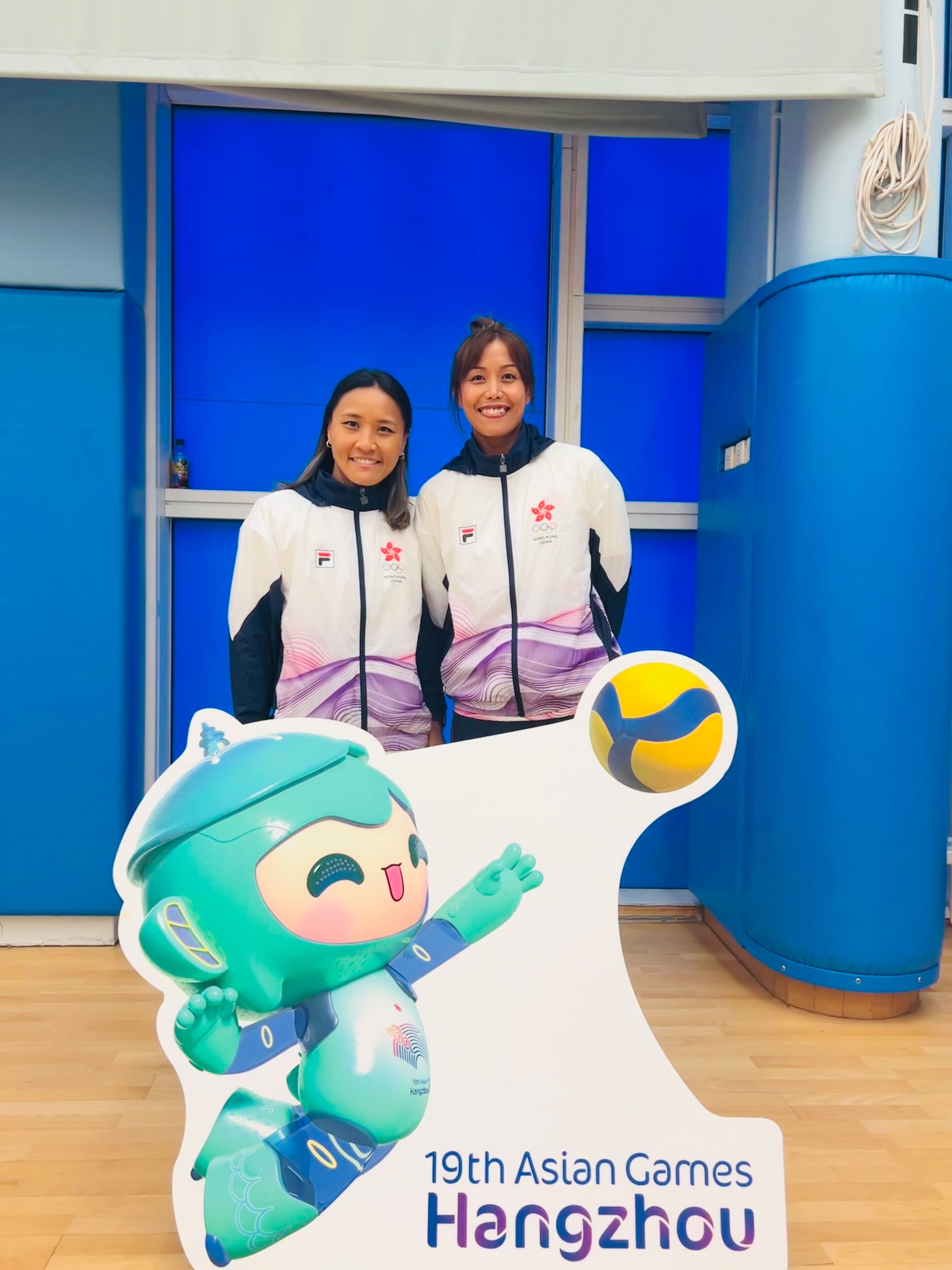
Q: You’re competing in the upcoming Asian Games. Are you psyched? Nervous?
YES, I am so psyched, as it’s my first Asian Games in over 15 years as a beach volleyball athlete. And I am so proud to wear the Hong Kong China flag to compete with different sports athletes from our city. My team did not make any promise of winning many games, but we are still confident in promising that we will truly show our spirit in putting up our best performance at each game.
Q: How are you preparing for that major competition?
During the eight months of preparation, my team has participated in two Asian tours in Thailand and Taiwan, one Asian championship in China, one FIVB World Beach Pro Tour in Korea and one Continental Cup in China. The participating teams in all of those preparatory tours are mostly attending the upcoming Asian Games, so this was very good preparation before the actual competition to understand their levels and how we curtail in between playing against professional full-time athletes, such as those from Japan and Thailand, keeping in mind that we aren’t full-time athletes out in Hong Kong.
Q: What does a totally chill day off look like for you?
A chill day for me would be carrying my Shiba-inu “Siu chai” walking along the seaside in Sai Kung and sitting for coffee around there, having casual chats with the neighborhood locals.

If you're looking to give beach volleyball a go, get in touch with Lolo @tsunami_beachvibes. You can also follow Onside Sports Group for a pulse on more up-and-coming sports happenings at @get_onside.

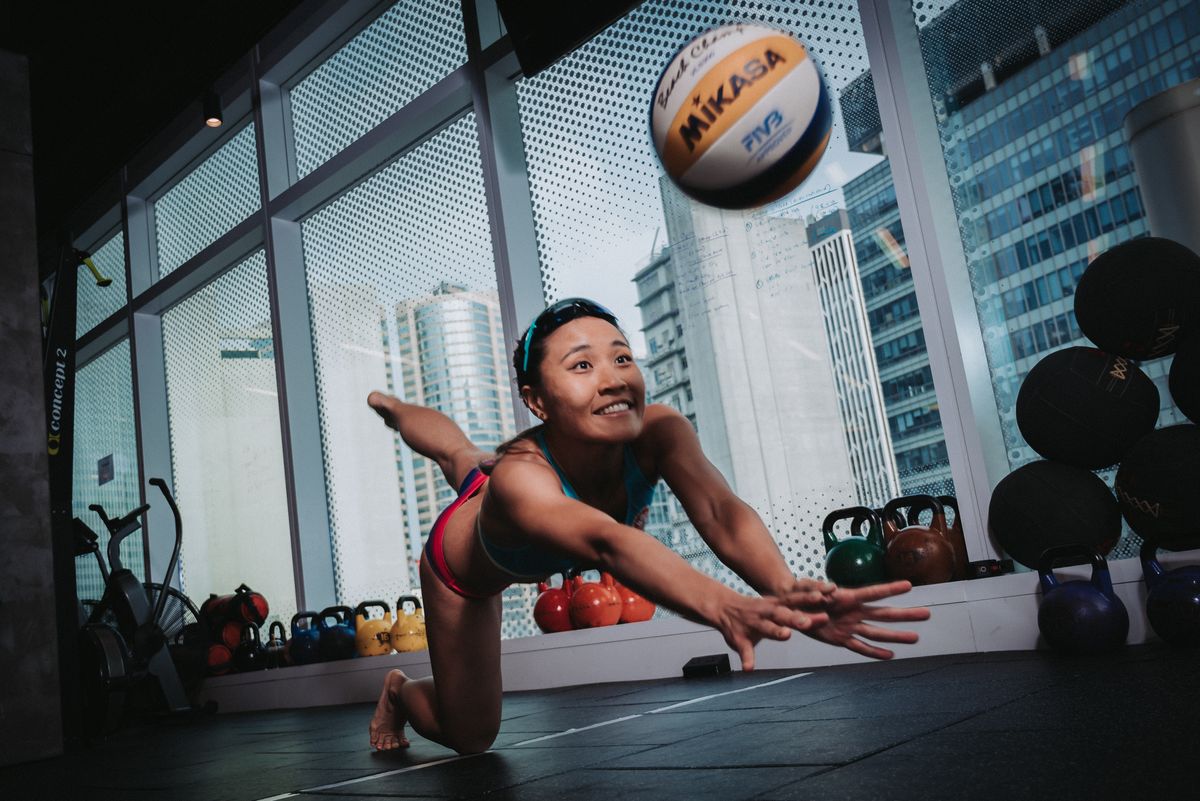



Comments ()